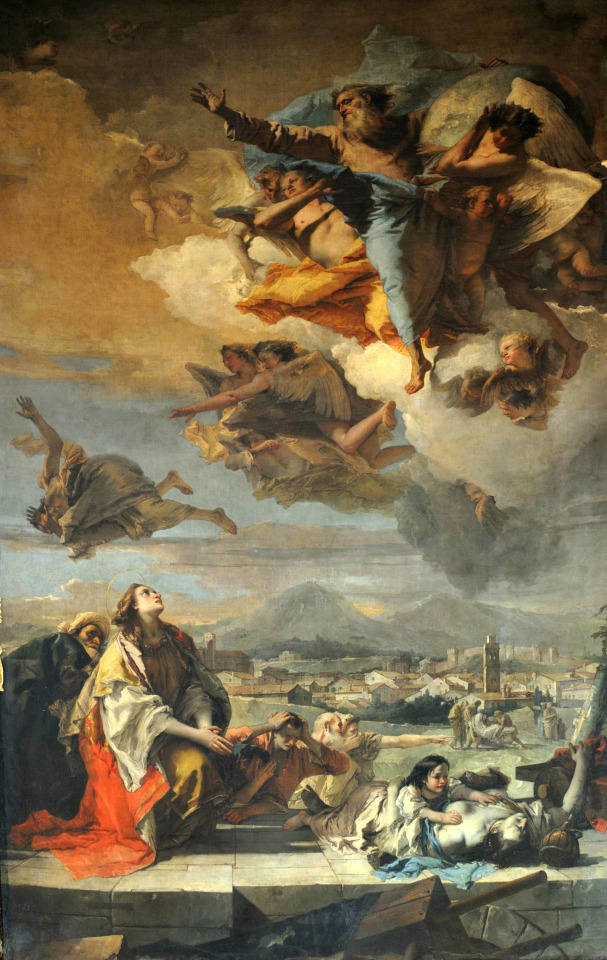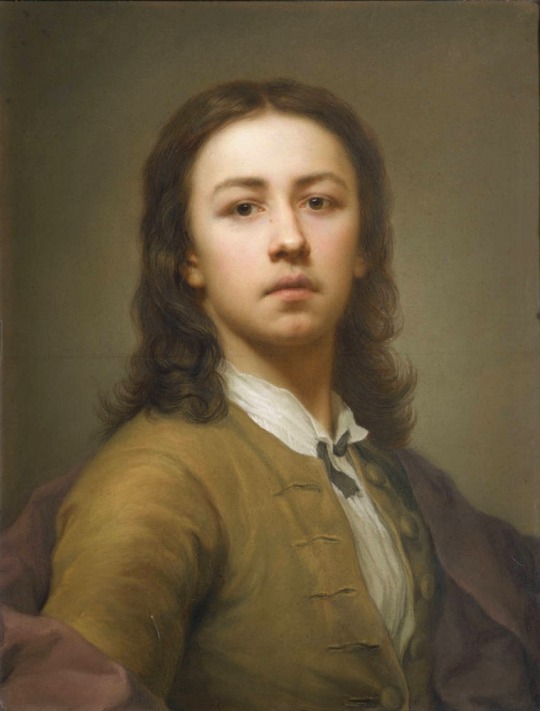Quotes, paintings, music, and other bits and pieces from books I'm reading
Don't wanna be here? Send us removal request.
Quote
In those days the students in Padua enjoyed very great privileges, which were in reality abuses made legal through prescription, the primitive characteristic of privileges, which differ essentially from prerogatives. In fact, in order to maintain the legality of their privileges, the students often committed crimes. The guilty were dealt with tenderly, because the interest of the city demanded that severity should not diminish the great influx of scholars who flocked to that renowned university from every part of Europe. The practice of the Venetian government was to secure at a high salary the most celebrated professors, and to grant the utmost freedom to the young men attending their lessons.
Casanova, The Story of My Life, Vol. I, Ep. I, Ch. III
0 notes
Photo

“Then one sees St George setting off to fight the dragon, taking his leave of the principessa. All that remains in the left half of the painting is the somewhat faded monster and two as yet flightless young. Bones and skeletons of animals and humas sacrificed to placate the dragon lie strewn around. The vacancy into which the fragment dissolves still conveys something of the terror which, long ago, must have filled the people of the Palestinian city of Lydda, according to the legend. The right portion of the fresco, the other principal part, is almost completely preserved. A landscape of a more northerly character rises (the word is suggested by the nature of the depiction) into a blue sky. A ship with billowing sails, making headway on an inlet, is the only element in the composition hinting at remoteness and distance; everything else is very much of the present and of this world, the undulating land, the ploughed fields, the hedgerows and hills, the city with its roofs, towers and battlements, and—a favourite motif at that time—the gallows with the hanged men dangling from it, which paradoxically imparts something lifelike to the scene. The bushes, bosquets and foliage are painted meticulously, and the animals, to which Pisanello always gave the closest attention, are also rendered with great care: the stork flying inland, the dogs, the ram, and the mounts of the seven horsemen, among them a Kalmuck archer with a painfully intense expression on his face. In the centre of the painting is the principessa in a gown of feathers and St Geroge, the sliver of whose armour has peeled off, though his reddish gold hair still glows about him.”
�� Sebald, Vertigo, pp. 39-40
2 notes
·
View notes
Photo

“The low-lying cloud drifting in from the Alpine valleys and across that desolated country was conjoined in my mind’s eye with a Tiepolo painting which I have often looked at for hours. It shows the plague-ravaged town of Este on the plain, seemingly unscathed. In the background are mountains, and a smoking summit. The light diffused through the picture seems to have been painted as if through a veil of ash. One could almost suppose it was this light that drove the people out of the town into the open fields, where, after reeling about for some time, they were finally laid low by the scourge they carried within them. In the centre foreground of the painting lies a mother dead of the plague, her child still alive in her arms. Kneeling to the left is St Thecla, interceding for the inhabitants of the town, her face upturned to where the heavenly hosts are traversing the aether.”
— Sebald, Vertigo, p. 26
2 notes
·
View notes
Quote
In later years he had never been able to reread Proust (as he had never been able to enjoy again the perfumed gum of Turkish paste) without a roll-wave of surfeit and a rasp of gravelly heartburn; yet his favorite purple passage remained the one concerning the name 'Guermantes,' with whose hue his adjacent ultramarine merged in the prism of his mind, pleasantly teasing Van's artistic vanity.
Nabokov, Ada or Ardor, p. 12
2 notes
·
View notes
Photo

Michel-Martin Drôlling, Jeune adolescent au bord d'une fontaine, 19th century [Musée des Beaux-Arts]
Ministère de la Culture
0 notes
Link
“At the point in the first act where the secretly married Paolino and Caroline join their voices in the apprehensive duet Cara, no dubitar: pietade troveremo, so il ciel barbaro non è, he imagined himself not only on the boards of that rudimentary stage but indeed actually in the house of the deaf-eared merchant of Bologna, holding his youngest daughter in his arms.”
— Sebald, Vertigo, p. 4
0 notes
Photo

Document Link
“It was not only on account of this but indeed by virtue of all that had happened to him of late that Beyle felt he had come of age and, in a spirit of adventure, disregarding his hunger and weariness and the objections of the Capitane, he set forth for the Emporeum, where that evening, as he knew from several public notices, Il Matrimonio Segreto was being performed.”
— Sebald, Vertigo, p. 4
0 notes
Photo


“For instance, he could no longer recall the wonderful Sistine Madonna he had seen in Dresden, try as he might, because Midler’s engraving after it had become superimposed in his mind; the wretched pastels by Mengs in the same gallery, on the other hand, of which he had never set eyes on a copy, remained before him as clear as when he first saw them.”
— Sebald, Vertigo, pp. 3-4
1 note
·
View note